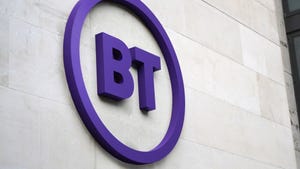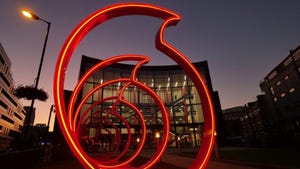New research from RootMetrics points the finger at UK telcos for not meeting the expectations of the demanding consumer, claiming only 53% of Brits are actually happy with their mobile service.
June 18, 2018

New research from RootMetrics points the finger at UK telcos for not meeting the expectations of the demanding consumer, claiming only 53% of Brits are actually happy with their mobile service.
Despite consistent belief and self-praise from the telcos, research pieces like this are becoming more common. Telcos argue performance and net promoter scores are constantly on the rise, while value added services are becoming a game changer, but perhaps this is evidence the telcos are fulfilling the core promise to the consumer; connectivity.
EE and Three have the highest levels of satisfaction with speeds, getting the thumbs up from 57% and 58% of respondents respectively, while O2 ranked the worst at 51%. These numbers aren’t necessarily the worst in the world, but there is almost certainly a considerable amount of room for improvement.
“5G will flush everything out and become a ubiquitous technology for connectivity in metro areas – no more Wi-Fi,” said Kevin Hasley, Head of Product at RootMetrics. “At the moment operators in the UK are involved in a bit of a cat and mouse game with each other and government about who will invest first in the infrastructure. Clearly mobile operators need to plan their capital expenditure carefully, but 5G will be a key battleground to winning subscribers in the near future and there is first mover advantage here.”
While data demands are intensifying, perhaps it is simply because the users have been offered the dream of something better. Telcos have been promising the absolute connectivity experience, anywhere, at any time, but realistically, living up to this expectation was always going to be a tall order. These promises of perfection have seemingly only set the telcos up to fail, and in turn, intensify the demand for 5G.
Looking at the business case for 5G, this is where the UK telcos (and Europe in general) are being a bit coy. Unlike counterparts in the US and Asia, UK telcos seem to resistant to the idea of aggressively rolling out 5G networks. There will of course be multiple reasons for this, from societal, to economic and political, but that does not change the suspicion that Europe will be the last to the connected bonanza. However, there might just be a business case in the consumer world after all.
According to the data, while price remains the defining factor when choosing a provider, 79% of respondents would be willing to pay marginally more if it could provide faster connectivity speed and higher reliability. O2 customers represented the most inclined, 17% to pay £10 or more for a better service, perhaps representing the frustrations of the customers who have been receiving apparent poor service. As with everything consumer related, you have to take it with a pinch of salt.
“People say they would pay more for better connectivity and that option is 100 percent available to them at the time of renewal, but many then make the decision on price alone,” said Hasley. “It is a false economy and people end up biting their nose to spite their face. In most areas of life we make decisions based on what we think is value for money, not just purely price motivated ones. Many among us have a tendency to be penny wise and pound foolish.”
About the Author(s)
You May Also Like








.png?width=300&auto=webp&quality=80&disable=upscale)


_1.jpg?width=300&auto=webp&quality=80&disable=upscale)


.png?width=800&auto=webp&quality=80&disable=upscale)